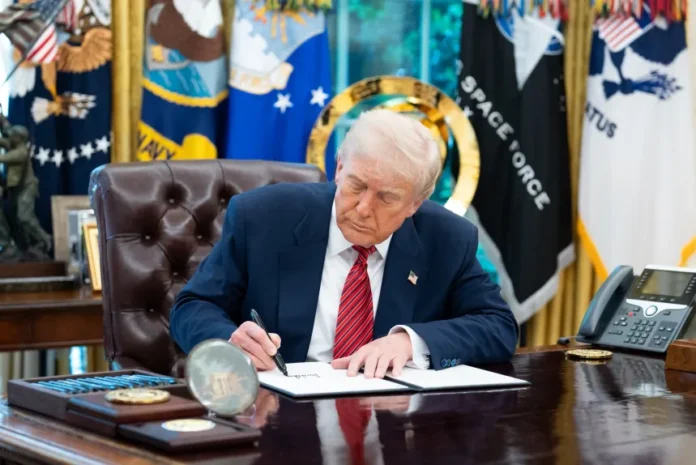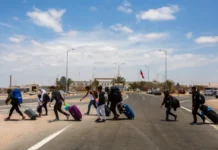The U.S. Supreme Court has ruled in favor of the Trump administration’s controversial policy allowing the deportation of migrants to third countries, even when those destinations are not their countries of origin.
In a 6–3 decision issued on Monday, the justices reversed a lower court ruling that had blocked the deportations, which required the government to provide migrants a meaningful opportunity to explain potential dangers they might face in third countries. The decision lifts a legal barrier that had been in place since April.
The case involved eight migrants from Myanmar, South Sudan, Cuba, Mexico, Laos, and Vietnam, who were deported in May aboard a flight reportedly bound for South Sudan. The Trump administration described the group as “the worst of the worst,” accusing them of committing serious crimes such as murder and arson, claims contested by the migrants’ lawyers, who say several of the individuals had no criminal convictions.
The dissenting liberal justices, Sonia Sotomayor, Elena Kagan, and Ketanji Brown Jackson, criticized the majority’s unsigned ruling. Sotomayor described the decision as a “gross abuse” and slammed the court for prioritizing executive discretion over constitutional protections.
“Apparently, the court finds the idea that thousands will suffer violence in farflung locales more palatable than the remote possibility that a district court exceeded its remedial powers,” Sotomayor wrote.
The Department of Homeland Security hailed the ruling as a victory. “Fire up the deportation planes,” said DHS spokesperson Tricia McLaughlin, declaring it a win for “the safety and security of the American people.”
Immigrant rights groups condemned the decision. The National Immigration Litigation Alliance, representing the plaintiffs, called it “horrifying,” warning that the ruling could lead to deportations of vulnerable individuals to countries where they risk torture or death.
The ruling underscores the Trump administration’s broader immigration crackdown and sets a precedent for handling future deportations under similar circumstances.
Written By Rodney Mbua



















